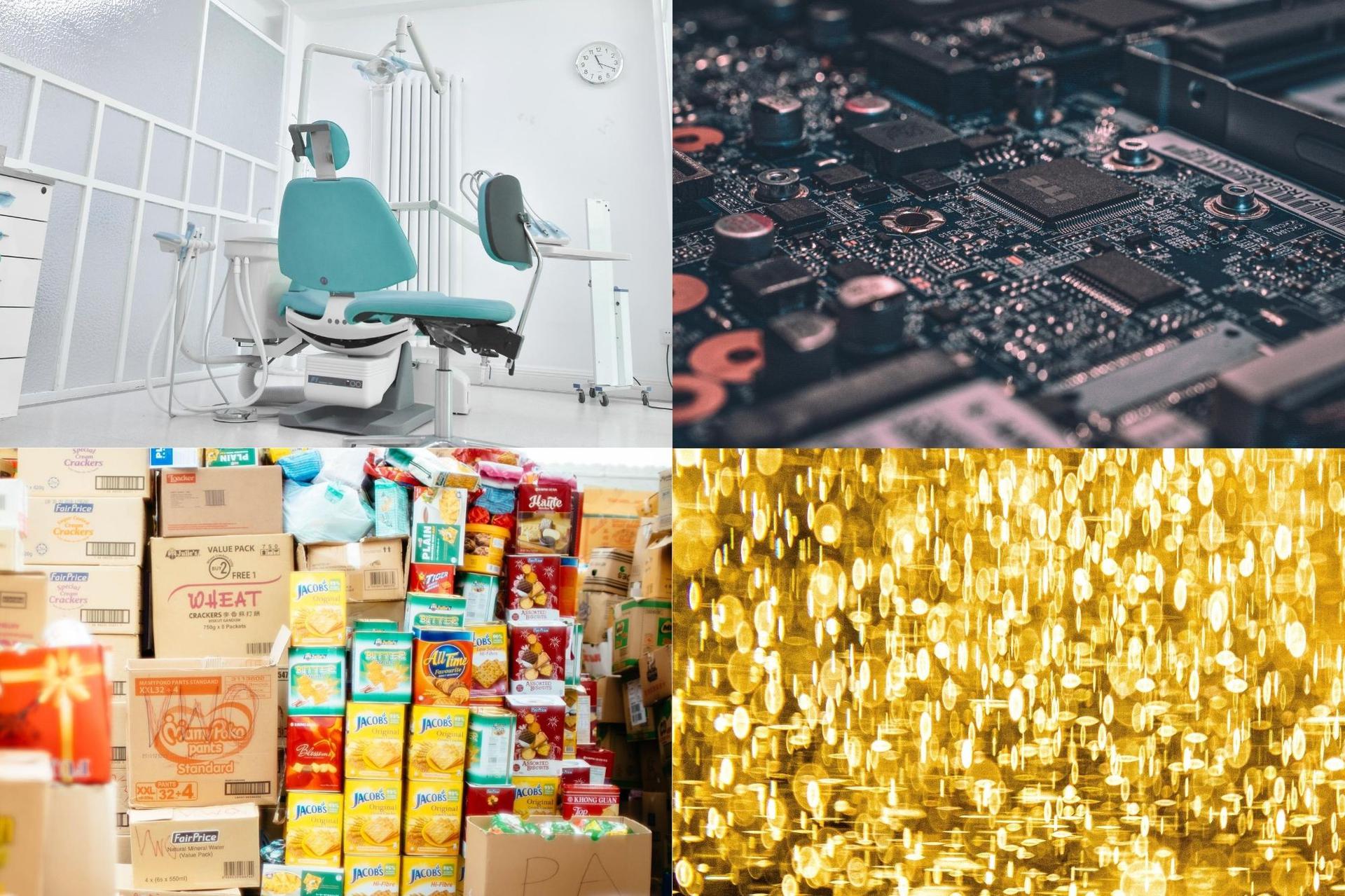|
What makes a company resilient in a crisis? by Aviva Investors
04 Aug 2020
As the COVID-19 pandemic hits global economies, equity investors are redoubling their focus on corporate resilience. But what does resilience mean in the current context – and which companies have it? 
The coronavirus pandemic has roiled markets and disrupted business models around the world. One consequence of the crisis has been a renewed focus on what makes a company resilient: from the size of its debts to the consistency of its revenue streams.
But resilience is not a static quality. What it means to be resilient will shift under different market conditions, argues Mikhail Zverev, head of global equities at Aviva Investors.
“You need to ask the question: ‘resilient to what?’,” he says. “Like ‘quality’, ‘resilience’ may sound like an absolute concept, but it depends on context.”
Winners and losers
In the current environment, a firm’s resilience will depend on the interplay between the fundamentals of the business and the fast-changing dynamics of economic activity and consumer behaviour amid severe coronavirus-related disruption.
Clear winners and losers have emerged in the early stages of the crisis. With global tourism effectively grinding to halt, the travel and leisure sector – airlines, hotels, casinos, cruise liners, and events – has been severely impacted. By contrast, software companies have benefited from the rise in demand for streaming and networking platforms during lockdowns.
While investors cannot have been expected to predict the onset of the pandemic, they should have been able to spot underlying vulnerabilities in the worst-hit sectors. Travel and leisure was already far from resilient: in mid-2019, a KPMG report found almost 12 per cent of UK companies in this sector could be categorised as “zombie” firms, with static or falling turnover, low profitability, squeezed margins, limited cash reserves and high leverage.1
Similarly, independent US oil producers were fragile before the recent collapse in energy prices.
Balance sheets and cash buffers
The troubles in these sectors serve to highlight the importance of strong balance sheets and manageable debt loads. The stock market has been particularly swift to punish companies whose debt includes covenants that would be triggered by a sharp decline in revenues, forcing them to raise equity.
“If a company has a lot of debt – especially debt with covenants attached – and its revenues have fallen to near zero, then its equity will have performed extremely poorly during the crisis,” says Giles Parkinson, global equities fund manager at Aviva Investors.
By contrast, large, dominant firms are more likely to be able to sustain themselves during the downturn, as they tend to retain access to debt markets at affordable rates, enabling them to roll over existing liabilities when needed.
Stronger still will be those firms that have amassed huge cash buffers in recent years. Tech giant Apple, for example, is sitting on a cash mountain of more than $200 billion, which means it should be able to continue investing in staff, marketing and valuable research and development initiatives during the pandemic – and potentially snap up enfeebled rivals when opportunities arise.
A recent study collated data on companies’ debt-insurance costs, leverage levels and cash buffers to create a league table of the most resilient global companies. Tech and pharmaceutical behemoths dominated the list.2
Supply chains: From efficiency to resilience?
Companies need more than just cash buffers and strong balance sheets to survive a crisis, however, and equity investors are closely scrutinising the impact on supply chains.
Alistair Way, Aviva Investors’ head of emerging market equities, says it is especially important for investors to monitor the status of international supply chains given the wide disparity in the severity of the pandemic – and government responses to it – across different countries and regions.
Way cites China-based Apple supplier Hon Hai as an example of a company that has taken care to ensure its customer base is properly diversified. Hon Hai’s core business – assembly of Apple’s iPhones – may be vulnerable if demand for consumer gadgets slumps. But the company also make telecoms infrastructure, servers and medical equipment, thanks to a concerted effort by its management to increase the scope of its business in recent years. “This strategy now looks spot on,” he says.
Companies with complex supply chains are still grappling with the immediate impact of the pandemic, and the longer-term implications are yet to become clear. But it is possible the “just-in-time” supply chain model that became the norm during the boom years of globalisation may give way to a more conservative “just-in-case” approach as the pandemic recedes, as companies seek to build larger inventories to ensure they are resilient against sudden shocks.
ESG: A key to corporate resilience
Attention to environmental, social and governance (ESG) factors is another key component of resilience. No company that ignores ESG risks can be described as resilient, when climate change poses a looming, existential threat to business models everywhere.
Better-managed, ESG-conscious companies will also have been more resilient to the specific risks associated with COVID-19, such as vulnerabilities in supply chains. This is because such firms tend to take a more careful and holistic view of their operations and those of the companies they are associated with, according to Jaimie Ramos Martin, global equities fund manager at Aviva Investors.
“Companies that are leaders in ESG are focusing on the resilience and sustainability of their business models,” he says. “Take supply-chain management: in order to be a leader in ESG, companies would have needed to better understand the carbon footprints and labour practices of their suppliers, which will have prepared them for the disruption when COVID-19 hit.”
Aggressive tax avoidance, poor labour and community relations and a substandard environmental record will be harder to defend in a world that has suffered through the collective hardship of COVID-19; companies that have demonstrated they are willing to do the right thing are more likely to retain the loyalty of their staff and customers.
Parkinson says it is important for equity investors to keep track of these kinds of qualitative measures – and take steps to improve them through engagement with company management teams – as they assess the resilience of their portfolios.
Investing on the right side of change
A recent McKinsey study tracked how 1,000 publicly traded companies fared during successive crises: it found an ability to nimbly adapt to new conditions was a hallmark of the best-performing firms.3
This ability to adapt can take many forms but a few recurring factors stand out. First is people; flexible, skilled and loyal staff add to a company’s adaptability and resilience. Second is diversification, both in terms of customers and supply chains. Third is cash; having a large war chest improves a company’s chances of withstanding pressure during a crisis. Fourth is culture; a strong management team that is open to change and willing to make tough, but socially responsible, decisions can significantly enhance a company’s reputation and bottom line. Together, these elements can create a resilient business.
However, with such profound changes to society and the corporate world inevitable in the wake of COVID-19, openness and ability to change might have the most influence in separating the weak from the strong. From the increase in home working to rising demand for cashless payments and cutting-edge medical equipment, resilient companies will already be thinking about how they can adapt and respond.
“You need to think about resilience in the context of change,” he says. “Change works both ways; it can be an opportunity and a threat. This is because change creates inefficiency. When something is changing in a business, when the future isn’t equal to the past, the market is more likely to misunderstand and misprice it, because when investors can’t continue to extrapolate from the past, they have to work harder to connect the dots.”
YOU MAY ALSO LIKE THIS
Sources:
1Yael Selfin, ‘Zombies in our midst’, KPMG, May 15, 2019. https://home.kpmg/uk/en/home/insights/2019/05/zombies-in-our-midst.html 2 ‘The pandemic shock will make big, powerful firms even mightier’, The Economist, March 28, 2020. https://www.economist.com/business/2020/03/26/the-pandemic-shock-will-make-big-powerful-firms-even-mightier 3 ‘Bubbles pop, downturns stop,’ McKinsey & Co., May 2019. https://www.mckinsey.com/business-functions/strategy-and-corporate-finance/our-insights/bubbles-pop-downturns-stop Aviva Investors' Disclaimer
Important: Except where stated as otherwise, the source of all information is Aviva Investors Global Services Limited (AIGSL) as at May 20, 2020. Unless stated otherwise any views and opinions are those of Aviva Investors. They should not be viewed as indicating any guarantee of return from an investment managed by Aviva.Investors nor as advice of any nature. Information contained herein has been obtained from sources believed to be reliable but has not been independently verified by Aviva Investors and is not guaranteed to be accurate. Past performance is not a guide to the future. The value of an investment and any income from it may go down as well as up and the investor may not get back the original amount invested. Nothing in this material, including any references to specific securities, assets classes and financial markets is intended to or should be construed as advice or recommendations of any nature. This material is not a recommendation to sell or purchase any investment. In Singapore, this material is being circulated by way of an arrangement with Aviva Investors Asia Pte. Limited (AIAPL) for distribution to institutional investors only. Please note that AIAPL does not provide any independent research or analysis in the substance or preparation of this material. Recipients of this material are to contact AIAPL in respect of any matters arising from, or in connection with, this material. AIAPL, a company incorporated under the laws of Singapore with registration number 200813519W, holds a valid Capital Markets Services Licence to carry out fund management activities issued under the Securities and Futures Act (Singapore Statute Cap. 289) and Asian Exempt Financial Adviser for the purposes of the Financial Advisers Act (Singapore Statute Cap.110). Registered Office: 1 Raffles Quay, #27-13 South Tower, Singapore 048583.
dollarDEX's Disclaimer
All information here is for GENERAL INFORMATION only and does not take into account the specific investment objectives, financial situation or needs of any specific person or groups of persons. Prospective investors are advised to read a fund prospectus carefully before applying for any shares/units in unit trusts. The value of the units and the income from them may fall as well as rise. Unit trusts are subject to investment risks, including the possible loss of the principal amount invested. Investors investing in funds denominated in non-local currencies should be aware of the risk of exchange rate fluctuations that may cause a loss of principal. Past performance is not indicative of future performance. dollarDEX is affiliated with Aviva but dollarDEX does not receive any preferential rates for Aviva products as a result of this relationship. Unit trusts are not bank deposits nor are they guaranteed or insured by dollarDEX. Some unit trusts may not be offered to citizens of certain countries such as United States. Information obtained from third party sources have not been verified and we do not represent or warrant its accuracy, correctness or completeness. We bear no responsibility or liability for any error, omission or inaccuracy or for any loss or damage suffered by you or a third party (including indirect, consequential or incidental damages) arising in any way from relying on this information.
This information does not constitute an offer or solicitation of an offer to buy or sell any shares/units.
Information is correct as of 04/08/2020. |




